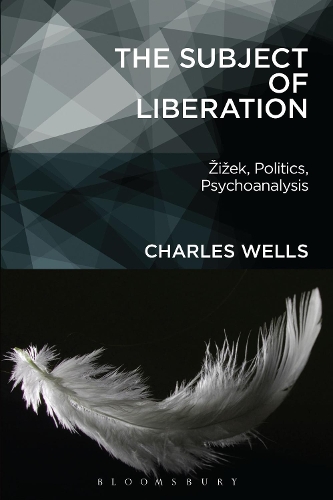
The Subject of Liberation: iek, Politics, Psychoanalysis
(Hardback)
Available Formats
Publishing Details
The Subject of Liberation: iek, Politics, Psychoanalysis
By (Author) Charles Wells
Bloomsbury Publishing PLC
Bloomsbury Academic USA
25th September 2014
United States
Classifications
Tertiary Education
Non Fiction
Left-of-centre democratic ideologies and movements
Social and political philosophy
320.53
Physical Properties
Hardback
256
Width 152mm, Height 229mm
516g
Description
The book shares iek's central problem of how to revitalize the radical political left through theory. It initially follows the argument developed in The Ticklish Subject that contemporary leftist thought is divided by antagonism between a Marxist revolutionary politics founded on Enlightenment philosophy and a politics of identity founded on post-modern post-structuralism. How iek used Lacan's theory of character structures is examined here to describe this theoretical deadlock and explain how the dominant contemporary ideologies of liberal tolerant multiculturalism and reactionary "pseudo-fundamentalism" compete to mobilize the individual subject's unconscious drive to enjoyment. The book thus emphasizes the moments in which iek hints that Lacanian theory may describe a practice that facilitates the resolution of antagonisms that placate radical leftist politics. It challenges prevalent interpretations of Lacanian ends of analysis, to ultimately connect the psychoanalytic cure to the leftist project of social and political liberation. The Subject of Liberation argues that if Lacan is to be useful to leftist politics, then the left has to develop its own definitions of the post-analytic subject, and proposes one such definition developed out of Lacanian and iekian theory.
Reviews
In this quixotic reading of ieks The Ticklish Subject Charles Wells provides a refreshingly personal yet political plea for revisiting the subject of liberation. Wells takes his readers to a journey that traces the path of leftist politics to a subject whose liberation requires as much imagination as courage. He bids his readers to begin right here. * Engin Isin, The Open University, UK *
In this thought-provoking and eminently readable book, Wells manages to unpack some of the densest passages in iek's 'theory of liberation' by distilling their political core. This is no small achievement. * Fabio Vighi, Cardiff University, UK, and author of On iek's Dialectics (2010) *
Author Bio
Charles Wells is Assistant Professor of Contemporary Studies at Wilfrid Laurier University, Brantford, Canada.
